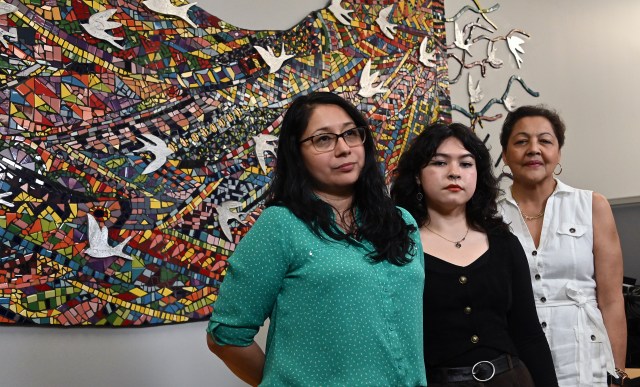In the weeks following the tragic collapse of the Francis Scott Key Bridge, which claimed the lives of several individuals, dedicated bilingual case managers from the Esperanza Center in Baltimore have been actively supporting the affected families. Lupita Espino and Mayra Loera, both Mexican women fluent in Spanish, have been diligently communicating with the victims’ families, ensuring that accurate information is shared and all questions are addressed promptly.
The victims of the Key Bridge collapse hailed from El Salvador, Guatemala, Honduras, and Mexico, with three bodies recovered and three still missing. The Esperanza Center, in collaboration with the Baltimore City Mayor’s Office of Immigrant Affairs, is providing crucial bilingual case management services to assist these families during this trying time.
Case management involves a range of support activities, including home visits, assisting with financial applications, and offering emotional support to help the families navigate their loss. Additionally, efforts are underway to facilitate repatriation of recovered bodies and arrange for family members to travel to the United States for funerals, with support from a nonprofit organization.
Espino and Loera have been actively involved in coordinating these efforts, ensuring that the families receive the necessary aid and assistance. Their compassionate approach and cultural understanding have enabled them to connect with the families on a deeper level, providing comfort and a sense of understanding during this challenging period.
The FBI’s deployment of Spanish-speaking linguists following the collapse highlights the importance of effective communication in times of crisis. These linguists have played a vital role in facilitating conversations between the affected families and various agencies involved in the response efforts, ensuring that critical information is accurately conveyed.
Beyond language interpretation, the cultural competency of the responders, such as Espino and Loera, has been instrumental in building trust and rapport with the Spanish-speaking families. Their ability to empathize and relate to the families’ experiences has made a significant impact, easing communication and fostering a sense of connection during this traumatic event.
As the dedicated responders continue to provide support around the clock, it is essential to acknowledge the emotional toll that such work can take. Both the FBI and the case managers prioritize mental health and well-being, offering support services to ensure the resilience and strength of those involved in the crisis response efforts.
In the midst of this challenging situation, Espino, Loera, and their colleagues remain steadfast in their commitment to supporting the families affected by the Key Bridge collapse. Their unwavering dedication, empathy, and professionalism serve as a beacon of hope and comfort to those grappling with unimaginable loss.
